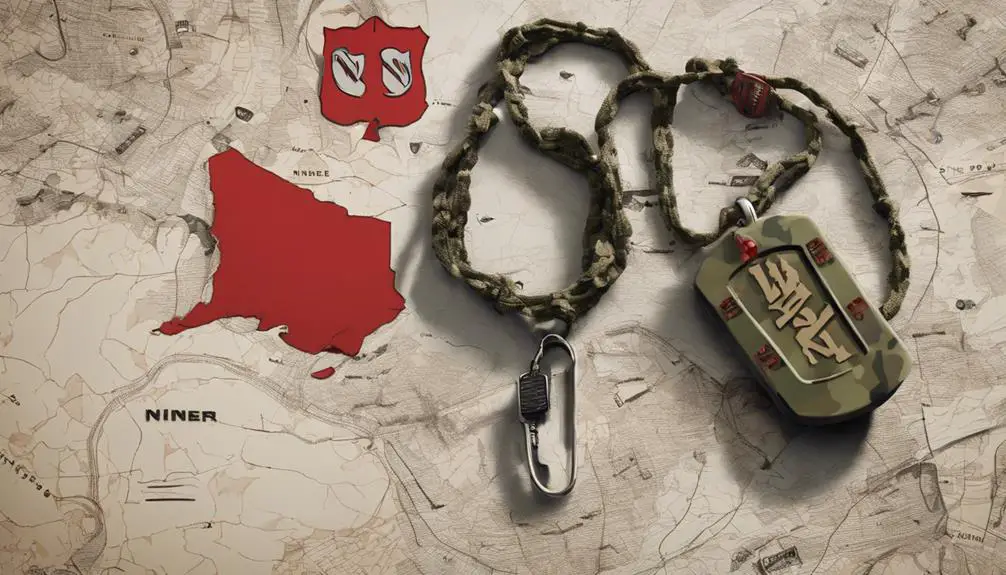When you're communicating critical information, you need a system that eliminates confusion. That's where military slang for numbers and letters comes in. The NATO phonetic alphabet assigns unique words to each digit and letter, ensuring accurate transmission of sensitive info like encryption keys. This standardized system prevents mix-ups between similar-sounding numbers and letters. You'll use it to transmit critical numerical and alphabetical information in high-stakes situations. Now, discover how this essential tool has evolved to become an important part of military communication, and find out more about its widespread adoption beyond the military.
History of Military Phonetic Alphabet
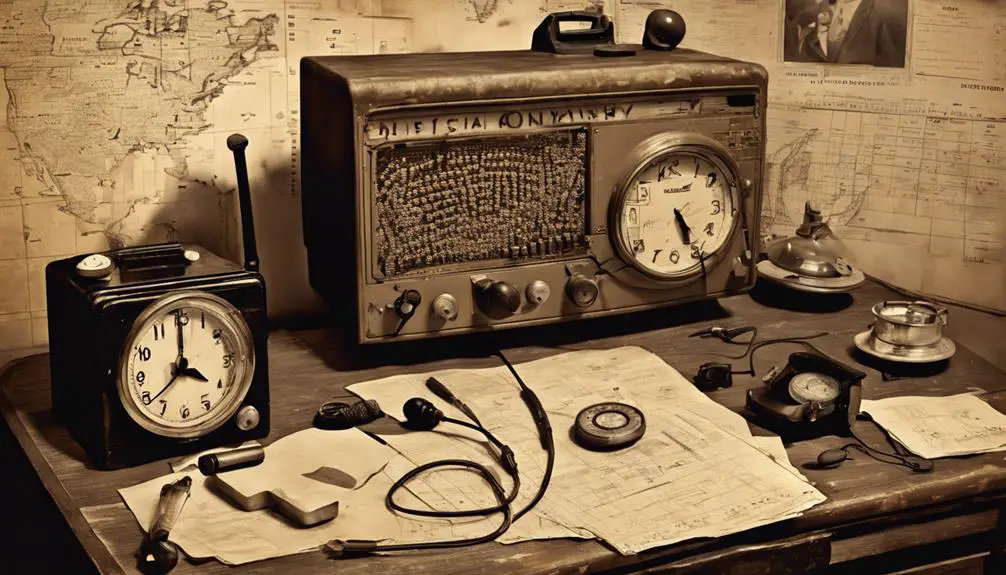
Since World War I, the need for a standardized communication system became apparent, and the military began developing a phonetic alphabet to reduce errors in radio transmissions. You might be surprised to learn that this wasn't the first attempt at creating a standardized communication system. Military communication precursors date back to the early 1900s, when the British Royal Navy used a phonetic alphabet to clarify transmissions. The US military took note and began developing their own system.
The phonetic alphabet origins can be traced back to the 1920s, when the International Telecommunication Union (ITU) developed a phonetic alphabet for radio communication. The ITU's system used words to replace letters, reducing confusion between similar-sounding letters. The military adapted this system, creating their own phonetic alphabet. You'll recognize this system, which uses words like 'Alpha' for 'A' and 'Bravo' for 'B'. This standardized system has been essential in reducing errors and ensuring clear communication during critical military operations.
How It Works in Radio Communication
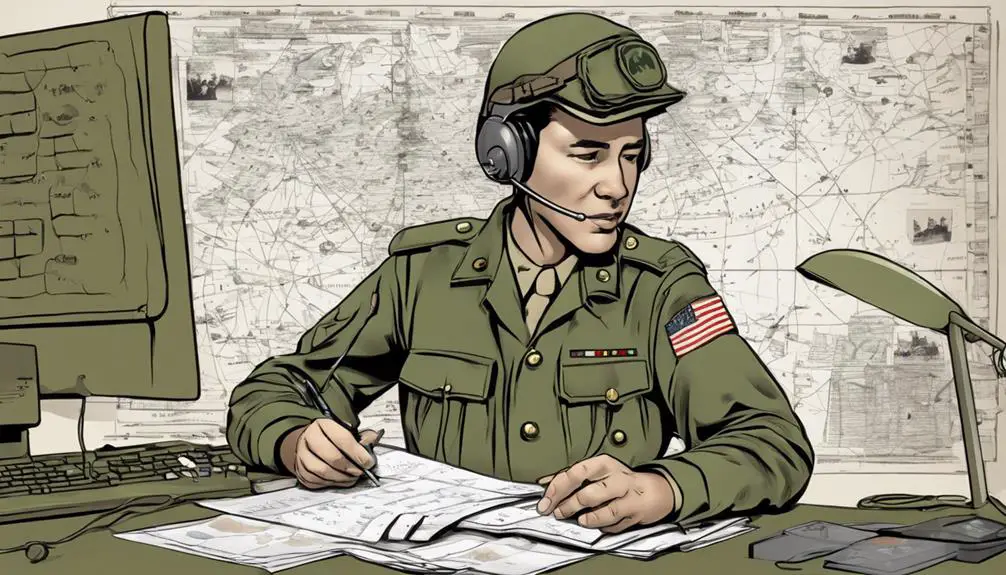
When you're communicating over radio waves, how do you guarantee that critical information like coordinates, call signs, and instructions are received correctly, without errors or misunderstandings? In high-stakes situations, clarity is essential. That's where military radio protocol nuances come in. By using standardized phonetic alphabets and numerical codes, you can make sure that important information is conveyed accurately.
In radio communication, even slight misunderstandings can have significant consequences. Communication breakdown risks are mitigated by using precise language and adherence to protocol. For instance, when transmitting coordinates, you might say 'Bravo- Uniform-Charlie-Kilo' instead of 'B-U-C-K' to avoid confusion. Similarly, when relaying numbers, you'd use a standardized code to prevent misinterpretation.
Numbers in Military Slang
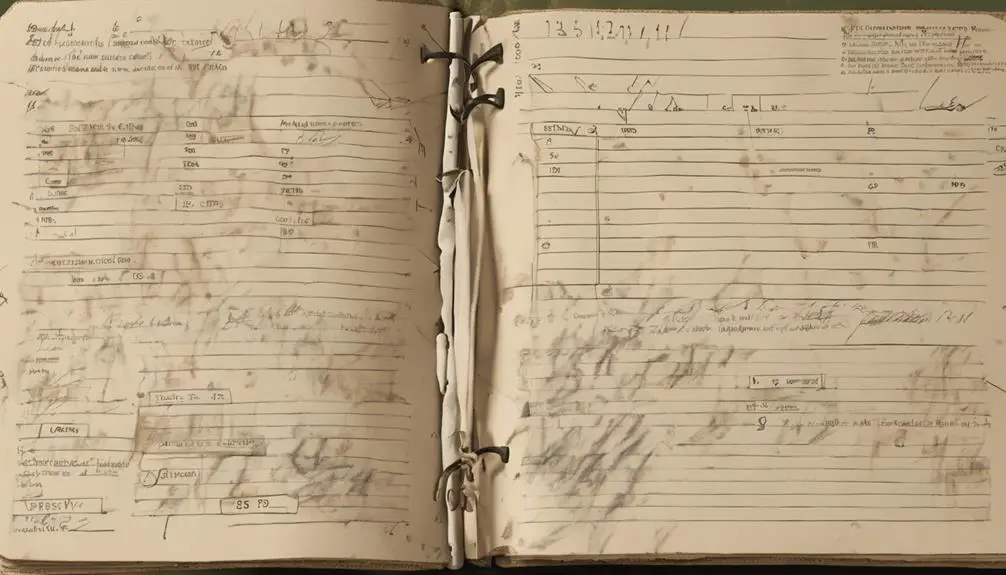
In military radio communication, you'll use a specific code to clearly convey numbers, guaranteeing that critical information like grid coordinates, frequencies, or serial numbers are received accurately. This code, known as the NATO phonetic alphabet, assigns a unique word to each digit from 0 to 9. For instance, the number 1 becomes 'una-one,' 2 becomes 'deuce-two,' and so on. This system prevents confusion between similar-sounding numbers, making sure that critical information is conveyed accurately.
When communicating numerical information, you'll often use number sequencing to convey complex data. For example, grid coordinates might be communicated as 'three-una-one, deuce-five-una' to ensure the receiving party understands the exact coordinates. Additionally, numerical codes are often used in operations to convey sensitive information, such as encryption keys or frequencies. By using these codes, military personnel can quickly and accurately convey critical information, even in high-stress situations. By mastering these numerical codes, you'll be able to effectively communicate critical information in high-pressure situations.
Letters in Military Slang
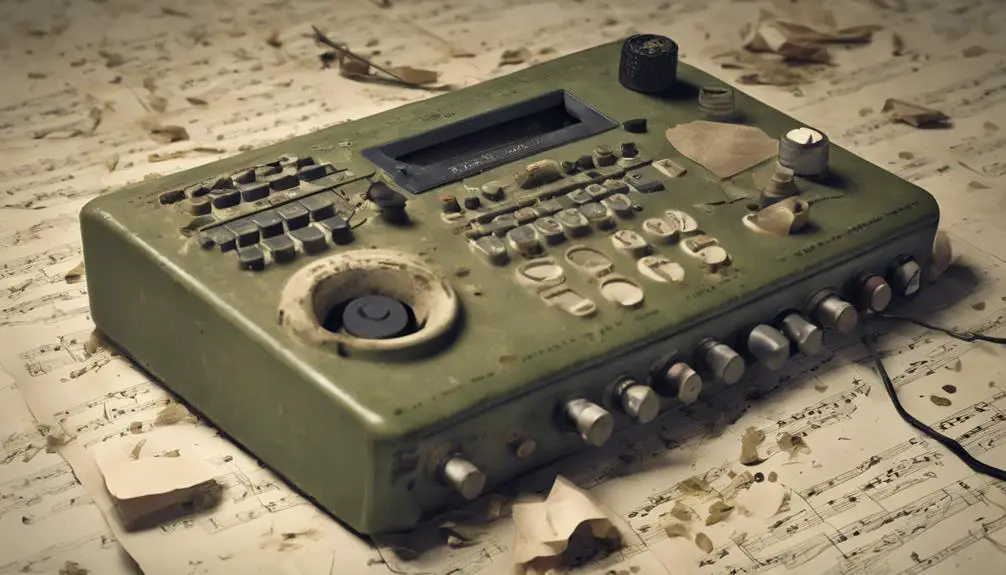
You'll use the same phonetic alphabet to clearly communicate letters, guaranteeing accuracy in critical communications like call signs, passwords, or identification codes. This standardized alphabet, also known as the NATO phonetic alphabet, assigns a distinct word to each letter, allowing for precise communication over radio and phone transmissions. In cryptography, letter codes play a vital role in encrypting and decrypting sensitive information. The origins of these alphabet codes can be traced back to ancient languages, where symbols and characters held specific meanings and significance. For instance, the ancient Phoenician alphabet, developed around 1500 BCE, is considered the precursor to modern alphabets. In the military, understanding the phonetic alphabet is essential for clear and accurate communication, particularly in high-stress situations. By using standardized letter codes, you'll minimize errors and ensure effective communication in critical situations.
Common Military Slang Examples
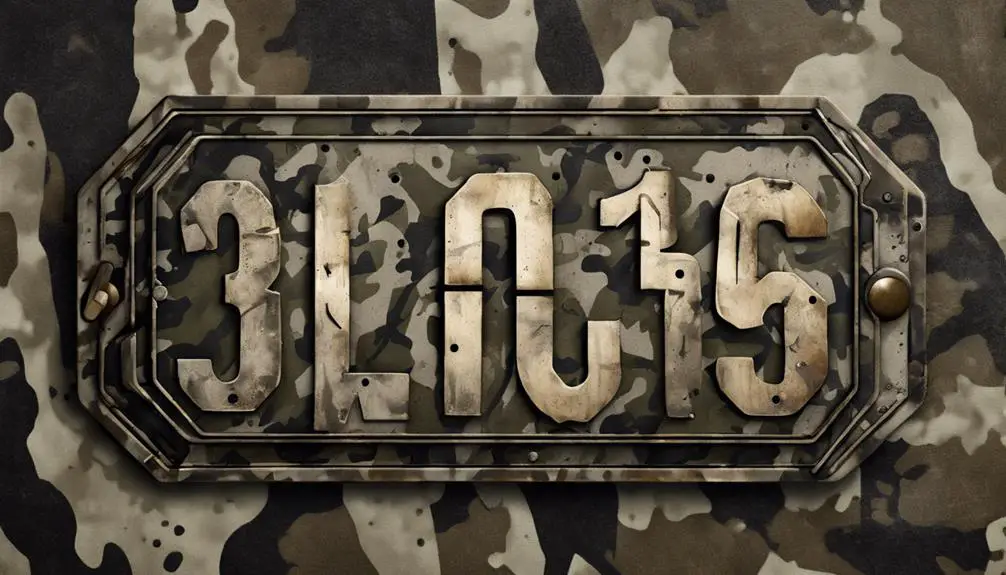
Several military slang examples have become an essential part of the military's daily communication, and it is important to be familiar with them to ensure smooth interaction. You'll often hear phrases like 'Hooah' (meaning 'yes' or 'okay'), 'Oscar Mike' (meaning 'on the move'), and 'Roger That' (meaning 'understood'). These slang terms have become so deeply ingrained in military culture that they've even made their way into popular culture, appearing in movies, TV shows, and music. You might've noticed that military lingo has become trendy, with phrases like 'Bravo Zulu' (meaning 'good job') and 'Charlie Mike' (meaning 'continue mission') being thrown around in casual conversation.
In military recruiting, slang plays a significant role in building camaraderie and establishing a sense of belonging. It's not uncommon to hear recruiters using slang to connect with potential recruits, making them feel more at ease and part of the team. By understanding these slang terms, you'll be better equipped to navigate the military's unique communication style and connect with those who serve.
Importance in Military Operations
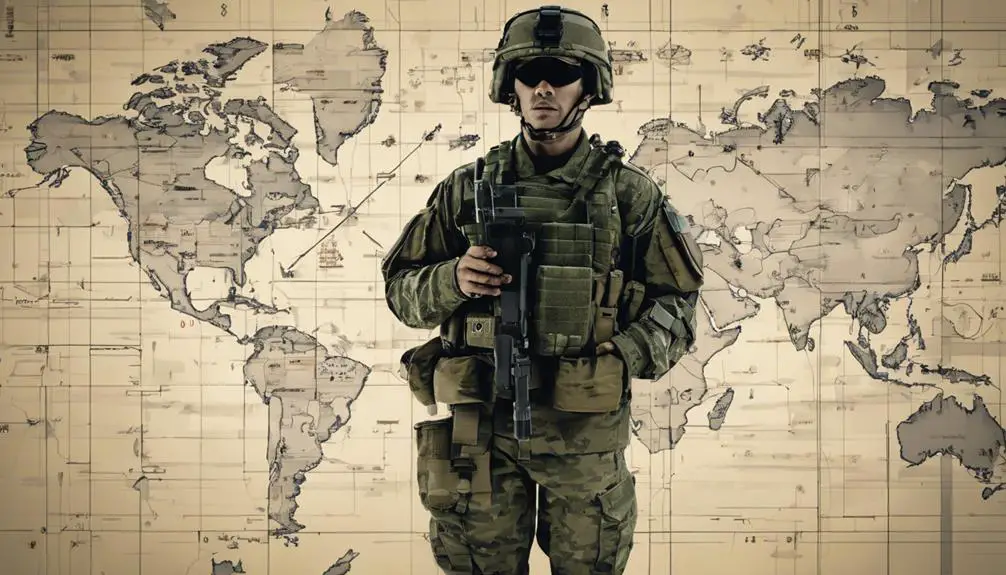
During military operations, every second counts, and clear communication is critical, which is where military slang for numbers and letters comes into play, ensuring swift and accurate transmission of essential information. You understand that a single miscommunication can have devastating consequences, and that's why military personnel rely on this specialized language to convey crucial data quickly and efficiently. This unique lingo has proven indispensable in high-pressure situations, allowing soldiers to react rapidly and make informed decisions.
Beyond its functional importance, military slang has also gained cultural significance, transcending its military context to influence everyday language. You may have noticed that phrases like 'Alpha-Bravo-Charlie' have become common in popular culture, reflecting the broader impact of military lingo in everyday life. This cultural significance is a confirmation of the power of military communication, which has permeated our collective consciousness.
Adoption by Other Forces Worldwide
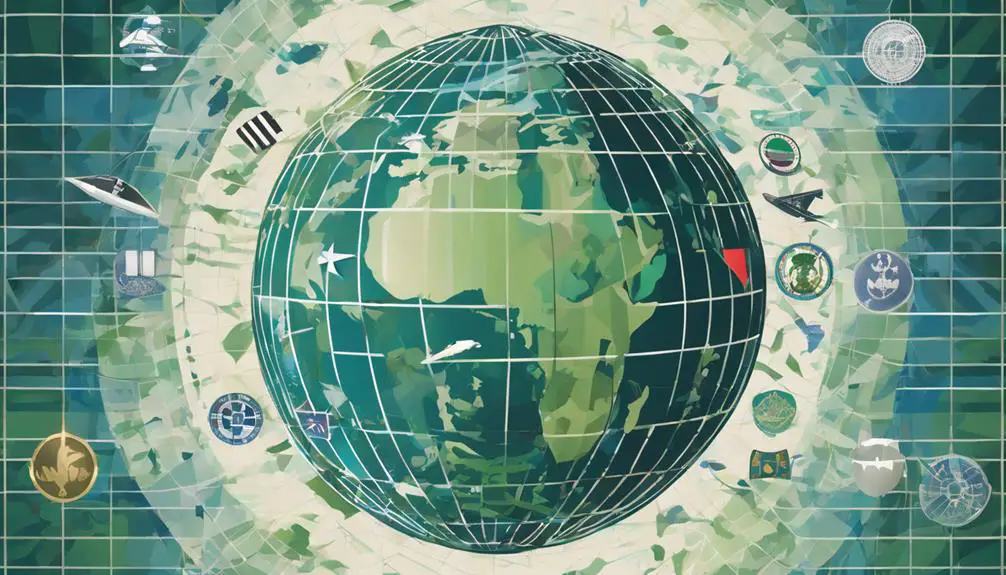
As military slang for numbers and letters has proven effective in high-pressure situations, other forces worldwide have adopted similar systems to enhance their own communication. You're likely to find that many countries have developed their own versions of this specialized language, tailored to their specific needs and operational environments. International cooperation efforts have facilitated cross-cultural exchange programs, allowing militaries to share best practices and adapt successful strategies. For instance, the North Atlantic Treaty Organization (NATO) has implemented a standardized phonetic alphabet, enabling seamless communication among member nations. Similarly, the Australian Defence Force has adopted a phonetic alphabet inspired by the US military's system. As you explore the global landscape, you'll discover that the use of military slang for numbers and letters has become a common thread among modern militaries, underscoring the importance of effective communication in high-stakes environments.
Evolution of Military Slang Language
The military's exploration of slang terminology for numbers and letters has undergone significant transformations over the years, with you witnessing a gradual shift from rudimentary codes to sophisticated phonetic alphabets that cater to the unique demands of modern warfare. As you investigate the evolution of military slang language, you'll discover that its origins can be traced back to the early 20th century. During World War I, soldiers relied on simple letter substitution codes to convey crucial information. These early slang origins paved the way for more complex language adaptations in the following decades.
You'll notice that the language adaptation process was largely driven by the need for secure communication. As military operations expanded globally, the demand for standardized communication protocols grew. In response, phonetic alphabets like the International Radiotelephony Spelling Alphabet (IRSA) and the NATO Phonetic Alphabet emerged. These sophisticated systems enabled clear and accurate communication, even in high-stress environments. As you explore the evolution of military slang language, you'll appreciate the critical role it plays in ensuring the success of military operations.
Modern Uses and Legacy
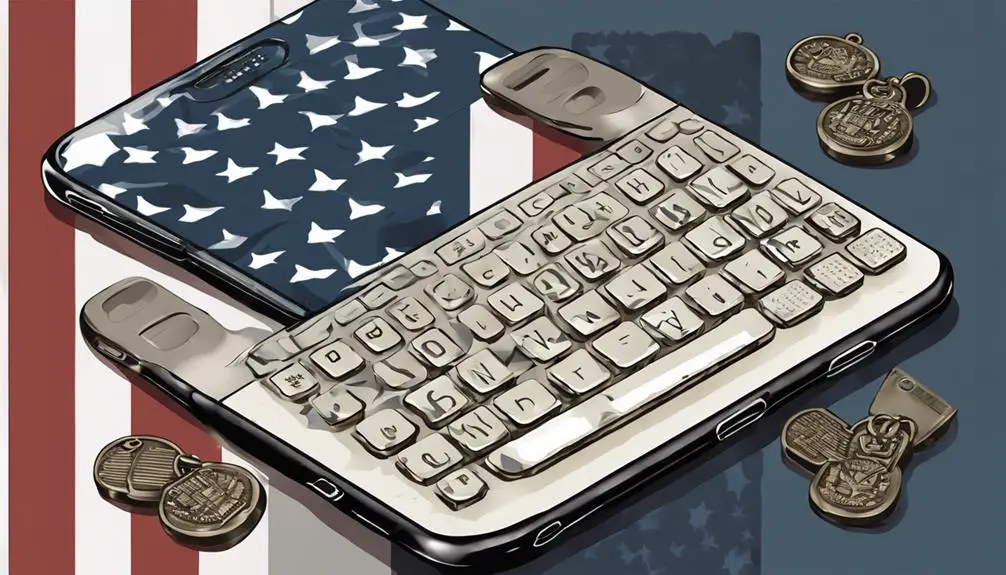
You'll find that the modern military's reliance on phonetic alphabets has led to their widespread adoption in various fields beyond warfare, including aviation, maritime, and international radio communication. This has contributed to their cultural significance in civilian life, with many people using them in everyday conversations. In popular culture, you've likely encountered phonetic alphabets in movies, TV shows, and books, often used to add a touch of realism or authenticity to military-themed scenes.
In addition, phonetic alphabets have become an integral part of everyday usage in popular culture. You may have heard them used in films, video games, or even in music lyrics. This widespread adoption is a proof to the versatility and practicality of phonetic alphabets, which have transcended their military origins to become a ubiquitous aspect of modern communication. As you explore the world of phonetic alphabets, you'll discover how they've become an integral part of our shared cultural landscape.
Frequently Asked Questions
Is Military Slang Only Used for Radio Communication Purposes?
You might think military slang is only used for radio communication purposes, but that's not entirely accurate. Military lingo has evolved to facilitate clear communication in various situations, not just radio protocol. While radio protocol limitations do contribute to the use of abbreviations and acronyms, military slang is also used in written reports, orders, and face-to-face conversations to convey complex information quickly and accurately.
Are Military Slang Codes Universal Across All Countries' Forces?
You might think that military slang codes are universally understood across all countries' forces, but that's not entirely true. While some codes are widely adopted, a cross-cultural comparison reveals that each country has its own nuances. International standardization efforts exist, but differences in language, culture, and operational needs lead to variations. You'll find that different countries have their own codes, making it essential to understand the specific conventions used by each nation's forces.
Can Civilians Use Military Slang in Everyday Conversation?
When you consider using military slang in everyday conversation, you might wonder if it's appropriate. However, cultural appropriation concerns arise when civilians adopt military slang without understanding its origins or significance. Social media has accelerated the adoption of military slang, but it's crucial to be mindful of the context and respectful of the military community. You should be aware of the potential impact of using military slang and use it thoughtfully to avoid perpetuating cultural appropriation.
Is Military Slang Only Used for Conveying Secret Messages?
You've probably heard military slang used in movies and TV shows, but do you think it's only used for conveying secret messages? Not even close! Military slang has origins dating back to the 19th century, born from the need for brevity and clarity in high-stress situations. Over time, it evolved to encompass a unique language, with terms like "brass" for high-ranking officers and "situational awareness" for being alert. It's not just for secret messages; it's a linguistic adaptation to the chaos of war.
Are There Any Variations of Military Slang for Different Branches?
You'll find that different branches of the military have their own unique lingo. Branch-specific dialects, like Navy's "deck ape" for a sailor who works on deck, or the Army's "hooah" for a motivational shout, vary across services. Even within branches, Service-specific dialects can differ, such as the Air Force's "butterbar" for a second lieutenant. You'll need to learn the specific slang of your branch to communicate effectively with your unit.

